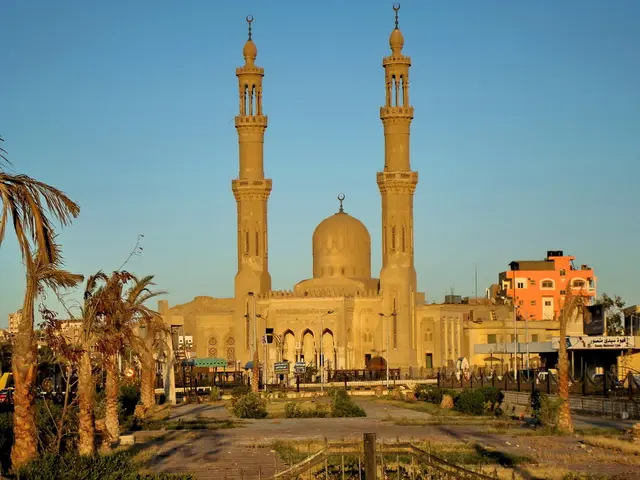International Body Imposes Sanctions on Iran Following Council Vote at the UN Security Council
The UN General Debate in New York, scheduled to start on Tuesday, will see the attendance of around 150 heads of state and government, including Austria's Federal President Alexander Van der Bellen, Federal Chancellor Christian Kern, and Foreign Minister Beate Meinl-Reisinger. Last month, Sebastian Kurz, who was then serving as Austrian Chancellor, represented Austria at the UN General Debate.
The focus of the debate, however, has shifted towards the UN Security Council's recent vote on a resolution draft regarding the snapback mechanism for re-imposing UN sanctions on Iran. The snapback mechanism was initiated by Britain, France, and Germany on August 28, following Iran's alleged violation of the Vienna nuclear deal of 2015.
On Friday, the UN Security Council did not adopt the resolution draft to suspend sanctions against Iran. The outcome of the vote means that there is still time for negotiations with Iran until September 28. Nine members of the UN Security Council voted against the resolution draft, and two abstained. Russia, China, Pakistan, and Algeria voted in favour of the draft.
The Vienna nuclear deal, often referred to as the Joint Comprehensive Plan of Action (JCPOA), is an agreement that aimed to limit Iran's nuclear programme in exchange for the lifting of international sanctions. The violation, as stated by Germany, Britain, and France, includes uranium enrichment exceeding civilian purposes.
If the resolution draft is not passed, punitive measures against Iran from 2006 to 2010 are likely to come into effect on September 28 (September 27 midnight US time). These measures, if implemented, could potentially reinstate UN sanctions against Iran.
The UN Security Council is a powerful UN body with 15 members. It holds significant influence in global affairs and is responsible for maintaining international peace and security. The snapback mechanism is a mechanism for re-imposing UN sanctions on a country that has violated UN resolutions.
The failure of the resolution draft to pass in the UN Security Council does not necessarily mean the end of negotiations. It provides an opportunity for continued dialogue and diplomacy, with the hope of reaching a peaceful resolution. The UN General Debate offers a platform for world leaders to discuss these crucial issues and work towards a more peaceful and secure future.
Read also:
- United States tariffs pose a threat to India, necessitating the recruitment of adept negotiators or strategists, similar to those who had influenced Trump's decisions.
- Weekly happenings in the German Federal Parliament (Bundestag)
- Southwest region's most popular posts, accompanied by an inquiry:
- Discussion between Putin and Trump in Alaska could potentially overshadow Ukraine's concerns







